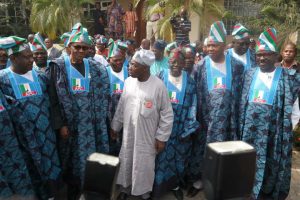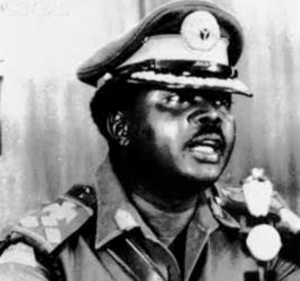We do not know what their discourse experts might still come up with before 2023 but, unlike 1999 and 2015, the struggle for power in Nigeria against 2023 would seem to lack one element: none of the numerous presidential aspirants across the political parties is promoting him or herself as a messiah. So far, none of Atiku Abubakar, Bukola Saraki, Yemi Osinbajo, Rotimi Amaechi, Yahaya Bello, Nyeson Wike, Pius Anyim, Aminu Tambuwal, Bola Ahmed Tinubu, Peter Obi and the numerous others has advanced in that toga.

Both Obasanjo and Buhari rode in as messiahs in 1999 and 2015, respectively
Few Nigerians would have forgotten the primacy of messianic representation of Chief Olusegun Obasanjo in 1998/99. The tag line was the distinction between good soldiers and bad soldiers. That was the deft script manager’s reply to the linking of Obasanjo to his military background by critics of his candidature. The debate ended there almost instantly and Obasanjo went on to enjoy himself to the fullest in ruling Nigeria again for eight years. He had been there before from February 1976 to October 1979, making approximately 12 years but not at a go as in General Yakubu Gowon straight from 1966 to 1975.
President Muhammadu Buhari arrived in presidential contest politics in 2003 fully dressed up and drummed up as a Messiah, the one who would make Nigeria clean again, wipe away corruption and get everyone to appreciate queuing and orderliness.
The country has seen the very limited successes of each of these messiahs or what a Nigerian Professor of Political Science calls “the messianic arrogance and residual militarism” that defined each of them in power, albeit in different percentages. But, the question is whether the dearth of messiahs ahead of 2023 has anything to do with this background or a conscious choice of the aspirants for a different reason. And is it necessarily a good or bad sign if there are no echoes of messianism so far in the approach to 2023? Above all, are Nigerians more developed in whatever sense of the word if they talk less of messiahs and messianism in Nigerian politics?

Was the late Gen Murtala Mohammed populist or charismatic or there is no distinction between the two?
Charismatic authority or the belief in the innate, superior capacity of certain individuals to be most suited to leadership in postcolonial Africa was a strong current across Africa in the 1960s. Such persons believed
Fortunately or unfortunately, Nigeria never had one. The late General Murtala Mohammed had a national appeal but his, some people would say, bordered more on armed populism than charismatic appeal.
Commenting on the desirability or otherwise of charismatic authority for Nigeria, Allison Ayida, an Oxford trained technocrat who was at the centre of the postcolonial State in Nigeria said: “As a nation, Nigeria has not been blessed with charismatic leadership universally acclaimed or generally acceptable to all. Neither have Nigerians been fortunate enough to have such a great leadership imposed. A charismatic leader must fire the imagination of the people and reflect their collective ego with pride. There is no historical necessity for this to happen in a heterogeneous society such as Nigeria but if it did, it will assist the process of restoring national self-confidence and arresting further decline of the nation”
But in a 2010 essay written purely for academic purposes, his kinsman and then University of Ibadan Professor of Comparative Politics, Eghosa Osaghae, says charismatic legitimation developed into unaccountable and authoritarian cult of personality and had ruled out charismatic authority “no matter how exemplary, messianic, heroic, or revolutionary they may be”. Osaghae who explored the theme from a Nigerian case study made the very powerful argument in his journal essay, “The limits of charismatic authority and the challenges of leadership in Nigeria” that the outstanding and extraordinary leadership qualities that marks out the charismatic individual could not counter what he calls ‘requisite institutional correlates in tandem with democracy, rule of law and accountability” when it comes to what could restrain the tendencies towards the personalisation of political power that has become the hallmark of charismatic leadership.
Between Ayida’s charismatic authority helps and Osaghae’s ‘it hasn’t worked for Africa’ is the question of finding out whom the current set of presidential hopefuls might be following and what the implication of their choice might be for Nigeria should they win.
It is a question which is vulnerable to a critical assault such as whether any of the aspirants so far has anything to do with charismatic approach. But such a question would have ignored the power of discourse experts working on the media strategy of a determined aspirant to successfully frame any of them as such. It is all about framing, particularly in the age of hyperreality when the real and the unreal can hardly be distinguished. Above all, how long does it take to acquire and deploy charismatic attributes through mediatisation?
This is why it is important to find out if it is out of awareness of their own limitations or their awareness of the limitations of charismatic authority that none of the aspirants is promoting himself as one. If it is the first reason, then something might be wrong. If it is the second, then we can, in spite of all that have gone very wrong, still say that Nigeria is sure to overcome. So, which is which at this moment?




























